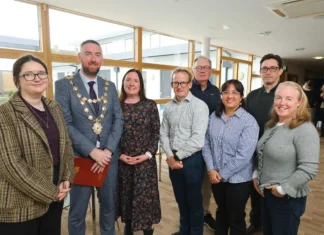As mobile technology continues to evolve, the landscape of app usage in Ireland and the
UK is experiencing significant shifts.
The diverse range of applications available is reshaping how people interact with their devices daily, from enhancing productivity to fostering social connections.
This article delves into the latest trends dominating the mobile app scene across these regions, providing a snapshot of how these innovations impact everyday life.
Productivity Apps
In today’s fast-paced world, productivity apps have become indispensable tools for many
in Ireland and the UK. With the increasing reliance on remote work and digital
communication, apps like Slack, Trello, and Microsoft Teams are surging in popularity.
These applications streamline workflow management, facilitate seamless communication,
and enhance collaboration, making them essential for personal and professional use.
Notably, the surge in demand for productivity apps speaks to a broader trend towards
optimising time management and efficiency, reflecting a growing need to balance work and
personal life more effectively. Especially in all-encompassing cities like Dublin, London and
more.
Education Apps
Education apps are transforming how people approach learning. Platforms such as
Duolingo, Khan Academy, and Coursera lead the charge, offering accessible and flexible
learning opportunities for all age groups.
These apps cater to various educational needs, from language acquisition to professional development courses. During the COVID lockdown, the education system had to adapt and these apps were highly beneficial to assist learning or facilitate it.
The convenience of learning at one’s own pace, coupled with interactive and engaging content, has made education apps a staple in households and institutions. This trend highlights a significant shift towards lifelong learning, where education is no longer confined to traditional classroom settings.
Social Apps
The popularity of social apps continues to soar, with platforms like WhatsApp, Instagram,
and TikTok dominating the scene. It is all about connecting with friends and family and
serves as a powerful tool for community building and content creation.
Social apps boast some of the highest retention rates, indicating their integral role in daily life. Users leverage these platforms to share experiences, stay informed, and engage with a global audience.
It also allows people to instantly get tailored content that they enjoy and find others that
relate to them. The UK and Ireland have had increased rates of loneliness among working
people, and this is a small step in combating that.
Gaming Apps
Gaming apps are a significant force in the mobile app market, catering to a wide
demographic beyond children. The gaming sector in Ireland and the UK is thriving, with
titles like Fortnite, Candy Crush, and Among Us capturing substantial user attention.
Mobile games, including the most popular casino games on the market, are not
surprisingly a significant component of this trend. The online gambling sector has taken
advantage of this mobile trend to satisfy its existing players and extend its adult audiences,
offering a variety of games that cater to diverse preferences.
This dual appeal of traditional video games and mobile casino games highlights the broadening scope of mobile entertainment, where gaming is a multifaceted experience that appeals to various interests and age groups.
Productivity, education, social, and gaming apps are easy categories of mobile apps that
are improving day-to-day lives, each contributing uniquely to how people interact with their
mobile devices.
As these trends continue to develop, it is clear that mobile apps will play an increasingly central role in shaping the future of digital interaction, offering innovative solutions that enhance individual and collective experiences.
Whether for work, learning, socialising, or entertainment, the power of mobile apps lies in their ability to adapt and respond to the changing needs of users in Ireland and the UK.













